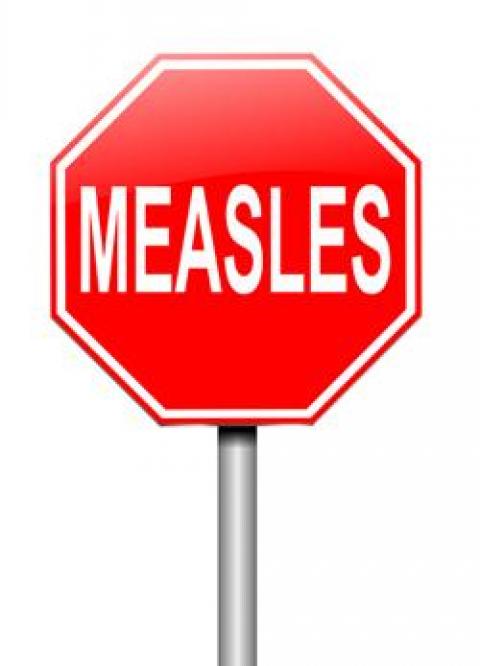Is the elimination goal for measles threatened?

The debate over measles vaccine is underway in many countries and, in some cases, the discussion came to court. It happened, for instance, in Italy in 2012, when a judge recognized the right to compensation (required by Italian law) for the family of a child vaccinated in 2002 with the trivalent vaccine MPR (measles-mumps-rubella) who were later diagnosed with autism. During the debate, the consultant of the family presented the research of the English physician Andrew Wakefield. On February 13th 2015, the appeal court overturned that judgment because the technician appointed by the court has judged scientifically irrelevant the reasons of the judgment in first instance.
This story explains why in Italy was observed a drop in vaccination and helps to understand the 1674 measles cases reported in 2014, in addition to the 2251 reported in 2013. Of this total, 80,8% were found in six regions (Emilia-Romagna, Lazio, Liguria, Lombardia, Piemonte and Sardegna).
Italy is not the only one that is threatening the Region’s goal of eliminating the disease by the end of 2015. Infact even though measles cases fell by 50% from 2013 to 2014, large outbreaks continue and seven countries in the European WHO Region have reported 22.567 cases of measles in 2014 and thus far in 2015:
- A nationwide outbreak of measles is underway in Bosnia and Herzegovina, with 5340 cases reported since February 2014.
- Georgia reported 3191 measles cases in 2014, and approximately 100 new cases have been reported in 2015, as of 23 February.
- As of 23 February 2015, 1091 measles cases have been reported to the national public health authority in Germany since the beginning of 2014. Most cases can be attributed to an ongoing outbreak of measles in Berlin (between October 2014 and 23 February 2015, a total of 540 cases have been reported to the national public health authority in Germany and one toddler died).
- Kazakhstan started supplemental immunization against measles on 26 January 2015, in response to an increased number of cases reported in 2014 (317); 220 more were reported in January 2015.
- Kyrgyzstan reported 7477 cases between May 2014 and February 2015. The first case was identified in Bishkek city on 3 May 2014, but the number increased dramatically in 2015. About 50% of those who fell ill were hospitalized and two children aged 1 year died.
- The Russian Federation reported 3247 measles cases across 71 federal districts to the WHO Regional Office for Europe in 2014.
To support European countries in these efforts, the WHO Regional Office for Europe launched a new European Vaccine Action Plan (EVAP), a regional interpretation of the Global Vaccine Action Plan, that represents a call for policy-makers, health care workers and parents to step up vaccination against measles across age groups at risk.
